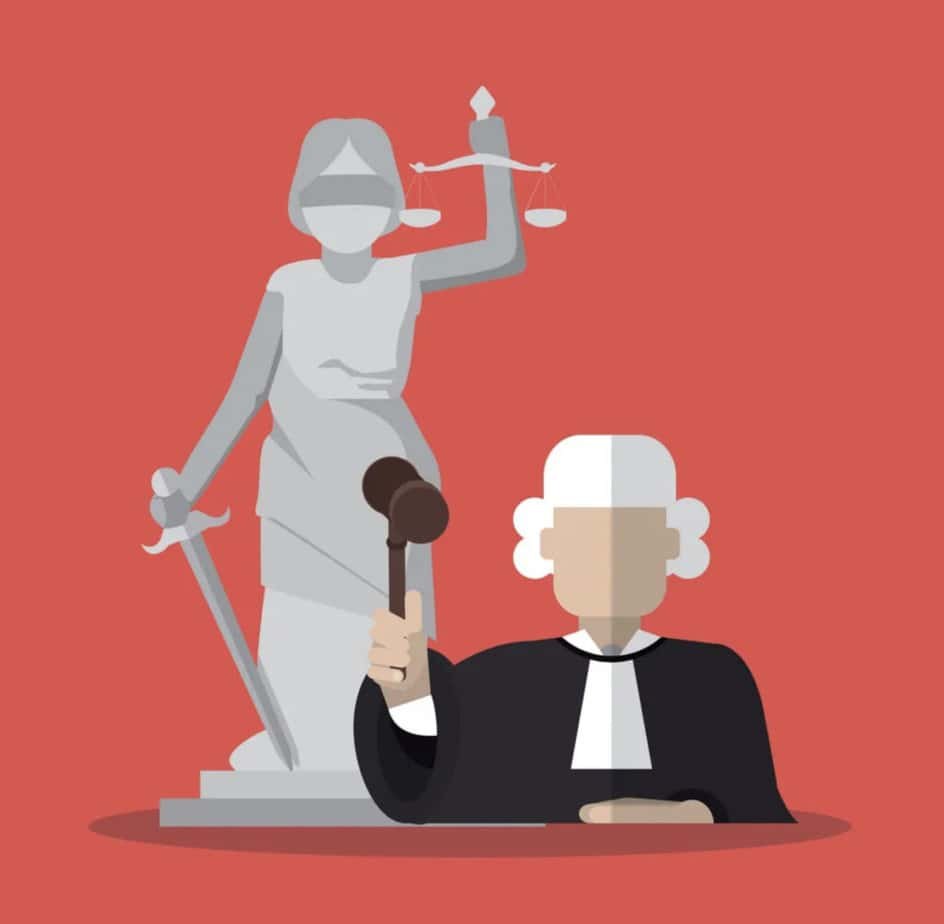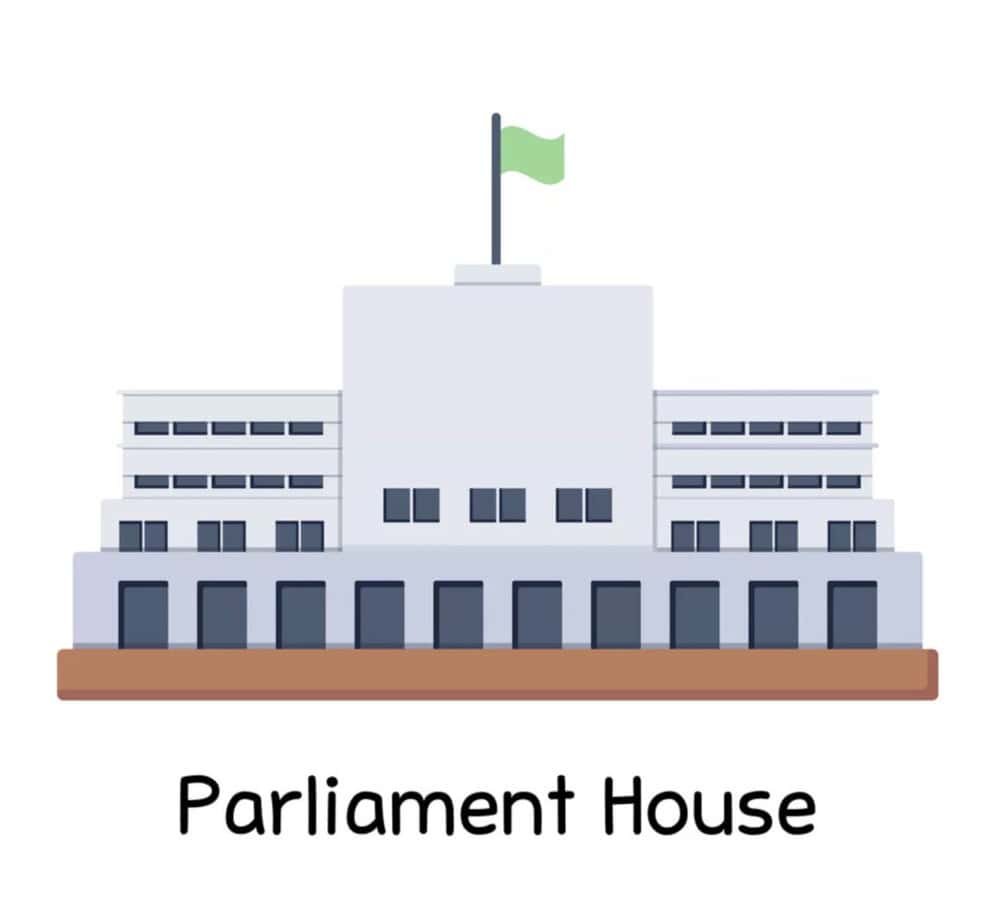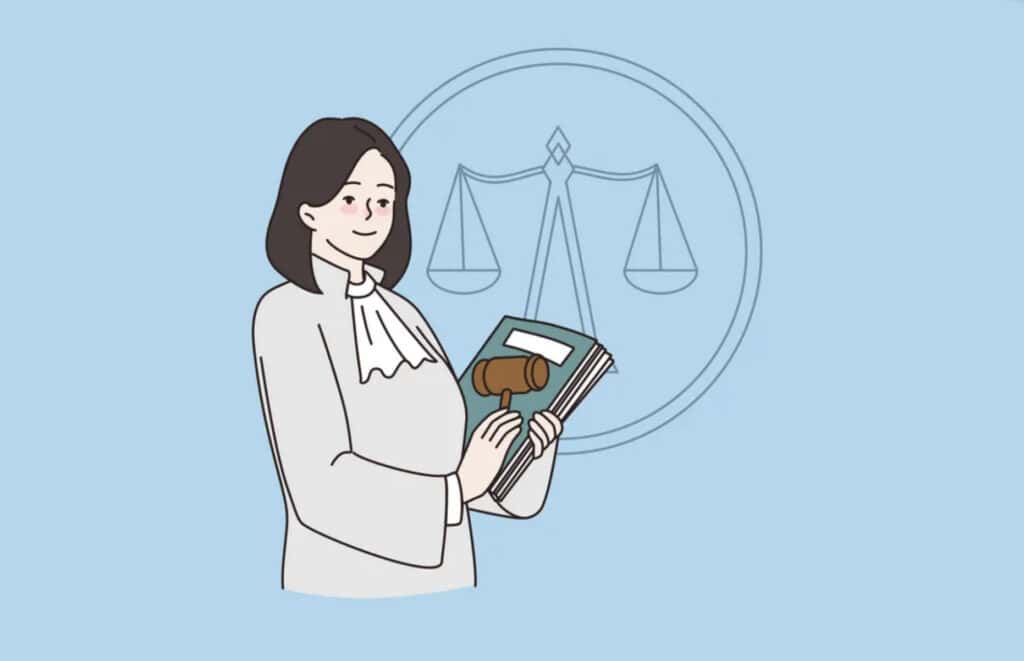How to pass a law in Bangladesh:
Article 65 of the Bangladesh Constitution grants the Parliament of the Republic the authority to establish both primary and secondary laws.
The main principles to be followed are laid out in Articles 80 and 82 of the Constitution. Article 26 of the Constitution adds that all existing legislation that are inconsistent with fundamental rights protected by the Constitution are void to the extent of such contradiction. Furthermore, Bangladesh is banned from enacting laws that are inconsistent with any of the sections of the Constitution protecting basic rights, and any such law shall be declared void to the degree of the inconsistency.
Article 7 of the Constitution declares the Constitution to be the ultimate law of the Republic, saying unequivocally that if any other legislation is inconsistent with the Constitution, that other law shall be void to the extent of the inconsistency.

Parliament is the exclusive source of statutory law. The executive proposes, prepares, and processes the majority of the law. The Cabinet is the true executive power, but in a parliamentary system of government, such as that found in Bangladesh, the Cabinet is also an integral element of the Parliament.
Except in a rare cases, all Cabinet ministers are members of Parliament and must answer to Parliament. Cabinet recommends a legislative initiative and arranges for a bill to be drafted by the Ministry of Law, Justice, and Parliamentary Affairs’ professional drafters. Cabinet then endorses the bill as a government bill ready for enactment.
The draft bill is presented to Parliament in order to establish new basic law. Parliament votes on the formal acceptance of a measure after deliberation and possible modifications. When a majority of the members present vote in favor of it, it is passed by Parliament. The bill is subsequently presented to the president for his signature.
Ordinary bills, money bills, and spending bills are the three types of legislative bills. Ordinary bills do not require the president’s prior approval before being introduced in Parliament. Money bills and measures involving public expenditure require the president’s prior approval before being tabled in Parliament. However, the president has no authority or discretion to refuse to approve the introduction of such laws into Parliament if recommended to do so by the prime minister. In actuality, it is the government’s recommendation, and the president’s involvement is essentially a mechanical formality.
Bangladesh’s legislative system is governed by the Rules of system of Parliament. They were first adopted on July 22, 1974. On February 5, 1992, a revised version of the Rules was published after various revisions. The Rules were revised further, and the alterations were approved by Parliament on June 10, 1997. The current Rules include all revisions made since October 1, 1997. The Rules’ Chapter XIII provides additional direction on the legislative process.
Policy formulation, drafting, and approval by the Cabinet:
Although Bangla is Bangladesh’s official state language, English was the primary language of legislative drafting until 1987.8 Legislation amending pre-1987 legislation is drafted in both English and Bangla, but modifications to the English text are made in English. Other modifying legislation and new laws are being drafted in Bangla. Bills and other government documents are frequently made available in both Bangla and English.
There are English language translations of laws produced in Bangla, and a bilingual system is recognized as a means of creating and structuring laws. As with the Constitution, if there is a discrepancy between the two language versions, the official Bangla version takes precedence.
Many laws that were created and passed in English must yet be translated into Bangla. The Ministry of Law, Justice, and Parliamentary Affairs is responsible for interpreting these legislation, and translation officers are stationed at the Ministry. However, extra personnel are needed to accomplish the work of fully translating all legislation into Bangla.

Unlike in Canada and the United Kingdom, where the government’s legislative agenda is planned far in advance of the opening session of Parliament where legislative proposals are to be tabled, there is no central preparation for legislative ideas in Bangladesh. There is no legislative calendar, and there is no coordination among the many ministries that want to introduce new measures. Bills are only authorized individually by Cabinet, and there is no procedure in place to decide general priorities. Bills are introduced on an as-needed basis, with the administrative/sponsoring ministry in charge commencing the process.
According to Article 55(6) of the Constitution, the president determines rules for the allocation and transaction of government business. Several guiding documents are used in this regard. The Rules of Business, 1996 (updated up to August 2000), and the Allocation of Business Among the Different Ministries and Divisions (Schedule I to the Rules of Business, 1996) are two examples. Specific topic areas are allocated to the relevant ministries and divisions based on relevance under the Allocation of Business Among the Different Ministries and Divisions. Civil law and criminal process, for example, are assigned to the Ministry of Law, Justice, and Parliamentary Affairs, which is designated as the administrative ministry for these (and many other) matters.
Secretariat Instructions
Another document is the Secretariat Instructions, 1976 (Secretariat Instructions). This paper dates back to 1899, when Lord Curzon was the governor general of British India. Following the establishment of an independent Bangladesh in 1971, efforts were made to create new Secretariat Instructions. The Secretariat Instructions were completed in 1976, and a Bangla version was issued two years later.13 The Secretariat Instructions are made in accordance with Rule 4(10) of the Rules of Business, 1975.
The major goal of the Secretariat Instructions is to promote consistency and efficiency in the implementation of administrative policies and procedures. The secretary, who is the senior civil servant within each ministry or division, is in charge of ensuring that the Instructions are followed. The Cabinet Division is in charge of preparing and maintaining the Secretariat Instructions.
Both the Rules of Business, 1996, and the Allocation of Business Among the Different Ministries and Divisions are supplemented by Secretariat Instructions. All government business must be performed in conformity with the Rules of Business, 1996, as well as the Secretariat Instructions.
In Bangladesh, the same ministry prepares both the policy behind a legislative proposal and the basic draft bill outline. According to the Secretariat Instructions, a ministry or division is responsible for the creation of government policies within its authority, as well as their execution and review.
The Rules of Business of 1996, as well as the Secretariat Instructions, require that every legislative proposal be begun at the administrative ministry to which the law or subject matter is allocated. Policy papers are typically prepared by senior government officials such as joint secretaries.
A preliminary bill is normally drafted by ministry experts or, in some cases, outside lawyers. After the law is prepared, inter-ministerial consultations are usually held, and legislative drafters from the Ministries of Law, Justice, and Parliamentary Affairs are invited to attend these sessions to make comments and ideas on the draft bill.
Thus, drafters play an important role in policy formulation early in the process. Nonetheless, widespread public consultation is not the norm.
Cases involving legislation
Cases involving legislation, including the promulgation of ordinances, are to be brought before Cabinet for consideration under Rule 16(i) of the Rules of Business, 1996.16 Furthermore, under Rule 4(ii) of the Rules of Business, 1996, no important policy decision shall be taken without Cabinet approval. As a result, the administrative ministry will begin the legislative process by drafting a summary for the Cabinet. The format of the report is prescribed in Rule 19 of the Rules of Business, 1996.
The secretary of the appropriate ministry sends to the Cabinet secretary a succinct and unambiguous memorandum outlining the background and important data, the topics for debate, and the sponsoring minister’s suggestions. The summary should be as self-contained as practicable, with appendices containing any essential papers required for appropriate identification of the case.
The Cabinet Division will specify the quantity of copies of the summary to be sent for Cabinet consideration. In the case of proposals involving expenditure or revenue reduction, the Finance Division’s opinion must also be solicited and reported in the summary. When a matter affects more than one ministry or division, the summary must include all ministries’ recommendations. For a summary to be placed on the agenda of a Cabinet meeting, at least four clear days are generally required. In general, no issue will be discussed unless a summary of it has been distributed.
The summary
The summary, which typically runs one to three pages, is absolutely confidential. The summary is usually accompanied by the preliminary draft bill. The draft bill makes the Cabinet summary easier to understand.
In both Canada and the United Kingdom, the proposal is first considered by a Cabinet committee. This committee is not a permanent entity and usually consists of four ministers.
Depending on the nature of the topic under consideration, various committees are formed. If the committee approves the plan, it will submit a report for full Cabinet consideration. If the idea is approved by the entire Cabinet, this stage is deemed Cabinet policy approval. All Cabinet meetings where proposed legislation is discussed require the law secretary to attend.
Approval of the proposal
Following proposal approval, the Cabinet secretary prepares a brief record of the discussions and records the decision made. This file is subsequently sent to the prime minister for final approval, and once approved, it is distributed to Cabinet ministers. Relevant decision extracts are provided to the sponsoring minister and ministerial secretary for action. At this point, the administrative/sponsoring ministry, also known as the ministry-in-charge, is authorized to proceed with the preparation of a final draft bill for Cabinet consideration.

The Ministry of Law, Justice, and Parliamentary Affairs must be consulted on all legislative initiatives, according to Rule 14(1)(i) of the Rules of Business, 1996. Furthermore, the Ministry of Law, Justice, and Parliamentary Affairs’ business includes the drafting, scrutiny, and examination of bills, ordinances, and other statutory orders, rules, regulations, by-laws, resolutions, and notifications, according to section 30, paragraph 2 of the Allocation of Business Among the Different Ministries and Divisions.
After the Cabinet approves an initial legislative proposal, the administrative/sponsoring ministry will forward the file to the Ministry of Law, Justice, and Parliamentary Affairs for drafting a draft bill or vetting a preliminary draft bill that has already been prepared and approved in principle by the Cabinet. For this reason, the Ministry of Law, Justice, and Parliamentary Affairs has a Legislative Drafting Wing (the Drafting Wing).
It was estimated in 2004 that the Drafting Wing develops roughly. 50 new legislation and 20-30 amending bills each year. It also drafts around 1000 subordinate legislative instruments per year, in addition to 3000 notices and other orders. Nonetheless, it is anticipated that the Ministry drafts bills with no preliminary version of the text already created by the ministry-in-charge in just around 10% of all situations.
Referring to the Drafting Wing
No legislative bill will ordinarily be referred to the Drafting Wing, nor will the Drafting Wing undertake the preparation of a bill, unless Cabinet has approved the proposal.
Every file remitted to the Drafting Wing for the preparation of a legislative proposal will be accompanied by all background papers associated with the proposal, particularly the summary to the Cabinet. A separate memorandum of instructions should indicate with sufficient precision the contours of the proposal as approved by Cabinet and set out clearly in the form of a series of propositions all matters of substance that are to be included in the draft legislation.
Because the ministry-in-charge develops the preliminary draft of the bill in the majority of cases, it does not prepare drafting instructions for the Drafting Wing.
Employing Jurists
Administrative/sponsoring ministries do not often have legal services sections, however some may employ one or two jurists. As a result, the drafters are frequently the first jurists to read the measure, and they are expected to raise all legal difficulties raised by it. When the Drafting Wing receives a legislative proposal, it examines the file to ensure that it does not contain any measures that are in violation of the Constitution or inconsistent with fundamental principles of state policy.
If no problems are identified, the Drafting Wing will notify the administrative/sponsoring ministry. If any issues need to be reconsidered, the Drafting Wing will return the plan to the ministry or division in question and provide advice and recommendations for suitable changes. Once the proposal has been revised, it is returned to the Drafting Wing for redrafting.
The Drafting Wing, a self-contained subdivision of the Ministry of Law, Justice, and Parliamentary Affairs, is a centralized and specialized drafting service comprised of civil service legislative drafting officials known as assistant secretaries, senior assistant secretaries, deputy secretaries, and joint secretaries. The Drafting Wing is led by an additional secretary. Drafters must be able to draft in both Bangla and English, and they are accountable for the overall quality of their final writings, both legally and linguistically.

The drafting officials of the Ministry of Law, Justice, and Parliamentary Affairs are responsible for translating the legislative proposal into an appropriate draft bill using legislative terminology. Ministry officials work in groups to achieve this goal. A team typically consists of three or four drafters, with each group including both senior and junior drafters. Senior drafters supervise junior drafters’ work, and file assignments are not based on competence or specialization.
Skills of Drafting officials
Drafters must have legislative drafting skills but are rarely specialists in any particular area of the law. In order to complete their work, drafters from the Drafting Wing frequently consult with officials from the administrative/sponsoring ministry or with outside experts and consultants who are knowledgeable about the subject matter of the bill. If there is any doubt about a constitutional or legal issue, the attorney general’s office may be asked to provide expert legal advice.
The Drafting Wing can also—and frequently does—request assistance from the Law Commission of Bangladesh in drafting specific bills, such as those relating to admiralty law.
After the Drafting Wing has finalized the text, it is forwarded to the secretary of the Ministry of Law, Justice, and Parliamentary Affairs for approval. Once the draft bill has been approved, it is sent to both the law minister and the state minister of law for preliminary political support.
The draft bill is then returned to the administrative/sponsoring ministry, the bill’s ministry-in-charge.
The ministry evaluates the bill once more to ensure that it accurately reflects both the ministry’s aims and Cabinet directions. The measure is then approved as written by the minister in charge. In circumstances where the Drafting Wing and the administrative/sponsoring ministry disagreed on the substantive provisions of the bill, the latter’s views would normally prevail. The Drafting Wing, on the other hand, would have the final say on legislative, linguistic, and drafting issues.
When an acceptable version of the bill is reached, it is forwarded to Cabinet for consideration as an official bill of the government. Once Cabinet has given the bill its final approval, the administrative/sponsoring ministry arranges for the parliamentary phase to begin.
When it comes to creating laws linked to the administration of justice, the Ministry of Law, Justice, and Parliamentary Affairs also has a policy development function. Traditionally, policy was formed while the law was being prepared, and issues were discussed and addressed among drafters during the drafting process. If a specific topic needed more clarification, it was referred to the Minister. However, subsequent reforms have resulted in the establishment of a separate policy formulation body within the Ministry.
This unit, led by the Secretary of the Ministry, will create the policy foundation for a proposed bill. Once a sufficient policy framework is obtained, the secretary will transmit it to the Drafting Wing for use in preparing the bill.
There is no distinct provision in the Constitution or the Parliamentary Rules of Procedure for amending a statute. As a result, when altering or repealing existing laws, the same general approach is followed as when creating new legislation.
The function of Parliament
Parliamentary democracy is not new to Bangladesh, and the current Parliament (the Jatiya Sangsad) is based on the British parliamentary model, despite being a unicameral political system. The Legislative Council of Bengal, ancestor to the current Parliament, was established in 1861, at a time when only a few jurisdictions outside of Europe and North America had established equivalent institutions.32
One of Parliament’s primary tasks is to debate and pass legislation. In Bangladesh, the legislative process is divided into three stages: deliberative, parliamentary, and administrative. Although the Rules of Procedure of Parliament do not specifically relate to terminology such as readings, the parliamentary stages are commonly referred to as first, second, and third readings—meaning introduction, consideration, and passing, respectively33.
The House’s business is divided into two categories: government business and private member’s business. Government business, according to Rules 24(2) and (3) of the Parliamentary Rules of Procedure, comprises of legislation, the budget, resolutions, amendments, and other motions introduced or sponsored by a minister. Bills, resolutions, amendments, and other motions proposed or moved by private members constitute private member business.
Bills from the government
As in Canada and the United Kingdom, first reading is merely a formal procedure for introducing a bill into the House and announcing its title. Only a minister may present a government bill in Parliament. A motion for leave to introduce a bill generally requires seven days’ written notice to the secretary of Parliament.
If sufficient reasons are provided, the speaker of the House may suspend this rule and allow the motion to be made on shorter notice. The notice is accompanied by two copies of the draft bill, as well as a document referred to as a Statement of Objects and Reasons and Notes on Clauses for the proposed new statute.
The administrative/sponsoring ministry of the proposed law prepares this document in cooperation with the Ministry of Law, Justice, and Parliamentary Affairs as needed. The text includes any background information that may be required to clarify the bill’s substance and origin.

If the measure requires the president’s advice before being introduced in Parliament, the notice must also include a certificate from the minister verifying that the president has recommended the bill. The motion to introduce the measure shall be entered in the Orders of the Day for a government business day. Orders of the Day are a formal listing of the day’s business written by the secretary of Parliament and approved by the speaker. Every member is provided with a copy.
The minister then moves for leave to introduce the bill when the item is called. A member may object to a bill’s initial introduction, but this privilege is rarely used. After the bill is introduced into Parliament, it is published in the Official Gazette. The secretary of the Parliament usually arranges for the bill’s publication as soon as possible, along with the Statement of Objects and Reasons and, if applicable, a financial memorandum.
At the second reading stage, the member-in-charge of the bill may propose that it be taken up for consideration, referred to a standing committee or a select committee, or circulated for public opinion.40 When a motion for circulation of a bill for public opinion is carried, Instruction 248 of the Secretariat Instructions states that the administrative ministry or division will supply Parliament, on request, with a list of the individuals, associations, and organizations that have signed on to the bill.
This is when the lengthy and frequently emotionally charged debate might take place. The administrative ministry or division will devise a strategy for shepherding a government bill through Parliament, as well as create a brief for the minister-in-charge to aid in explaining the substance and origin of the bill’s sections during parliamentary debate. Only the bill’s principles or general provisions may be debated. Details of the measure are not addressed beyond what is required to explain its ideas. At this time, no modifications to the bill are permitted.
It is a constitutional requirement for Parliament to appoint standing committees comprised of its members to investigate and supervise government operations.
The political parties are responsible for assigning members to various Parliamentary committees. However, there is no mechanism for automatic referral of any action, including bill consideration, to a parliamentary committee. It is only recently that bills have been systematically referred to committees. In fact, it was not uncommon for bills to be read for the second and third time on the same day.
Committees Under Article 76(1) of the Constitution
According to Article 76(1) of the Constitution, there must be a public accounts committee, a privileges committee, and any other standing committees required by Parliament’s Rules of Procedure. In addition to these committees, Parliament may appoint other standing committees to analyze draft bills and legislative initiatives, as well as to review the enforcement of laws and suggest enforcement actions.
A committee may also study any topic of public interest brought to it by Parliament, as well as any ministry’s actions or administration. A committee may request pertinent information and require an authorized representative of a ministry to respond to written or oral questions in this regard. Nonetheless, the government may refuse to release a document on the grounds that its revelation would jeopardize the state’s safety or interests.
The creation of specific committees is also provided for under Chapter XXVII of the Rules of Procedure of Parliament.
These are the business advisory committee, the committee on private member’s bills and resolutions, the select committees on bills, the committee on petitions, the standing committee on public accounts, the standing committee on estimates, the standing committee on public undertakings, the standing committee on privileges, the standing committee on government assurances, the standing committees on certain other subjects, the house committee, the library committee, the standing committee on Rules of Procedure, and other unspecified special committees.
Members of a committee are nominated by Parliament on a motion made by it, but no member of a committee may have a personal, financial, or direct interest in any topic presented to that committee. Committees are now chaired by members of Parliament who are not ministers, and the chair is generally elected by the committee from among its members. A committee can have members from both the government and the opposition. Ex-officio, the member-in-charge of a bill is a member of the committee reviewing the measure.

A quorum of one-third of the committee’s total number of members is required to have a lawful meeting. A committee’s meetings are held behind closed doors.
Annual financial statements (commonly known as the budget) are brought before Parliament to emphasize the government’s expected receipts and expenditures. According to Rule 111(3) of the Rules of Procedure of Parliament, the budget is not submitted to any committee.
General budget debate takes place during a regular House session presided over by the speaker. The budget is prepared by the Ministry of Finance, and other ministries, divisions, or departments are required to provide the essential materials on which the estimates are to be based.
When a bill is introduced in Parliament and referred to a committee for further consideration, Drafting Wing officials might attend committee meetings to provide technical assistance as needed.
When a measure is referred to a standing or select committee for further consideration, the committee returns the bill to the House with a report that may or may not include proposed amendments. At this point, debate on the motion is confined to consideration of the committee report or any alternatives keeping with the principles of the bill. Additionally, any member may make revisions to the law. Members of the House are provided with copies of the committee report.
When a resolution to take the bill under consideration is carried, the speaker sends the bill to the House for a vote, either clause by clause or as a whole.
If no amendments are proposed, the member may move to pass the bill immediately. The debate on a motion to pass must be limited to the introduction of reasons in support of or against the measure.
Amendments are made with three days’ notice, and if this procedure is not followed, any other member may object. However, the speaker has the authority to overrule any opposition and allow the amendment to be presented with less notice.
A proposed modification must not be ambiguous, pointless, or frivolous. If an amendment is dependent on an amendment that has already been rejected by the House, it will not be considered. An amendment must be pertinent to and within the scope of the motion to which it is attached.
Furthermore, an amendment that solely has the effect of a negative vote cannot be proposed. Where any amendment submitted in a bill could influence the idea of the bill or the government’s expenditure, the minister-in-charge will not commit to acceptance until Cabinet has approved it.
If the government proposes changes to a law that is already before Parliament, the administrative ministry or division writes the changes in consultation with the Ministry of Law, Justice, and Parliamentary Affairs.
When a private member offers an amendment to an existing law in Parliament, copies of the proposed amendments are sent to the administrative ministry or division, as well as the Ministry of Law, Justice, and Parliamentary Affairs.
Following assessment, the administrative ministry or division will transmit its comments to the minister-in-charge, together with any received from the Ministry of Law, Justice, and Parliamentary Affairs. If a private member proposes an amendment on the House floor, the minister-in-charge will usually seek for a postponement of proceedings to a later date so that this procedure can be followed.
The third reading stage is usually brief. The member in charge makes a motion to pass the measure as presented, and the speaker normally brings the proposal to a vote without allowing more debate. A measure is carried by a majority of the members present and voting, subject to the session’s quorum. The person in charge of the measure may withdraw it with leave at any moment before it is passed. When the law is passed by the House, the speaker signs it three times and sends it to the president for his signature. Following the president’s assent, the secretary of Parliament publishes the measure in the Official Gazette as an Act of Parliament. One original signed copy of the measure is kept for verification and record purposes, and it is not allowed to leave the House’s custody without the speaker’s approval.

Bills introduced by individual members
Private member’s bills, similar to the Canadian and British parliamentary systems, are legislative measures introduced not by government ministers but by private members of Parliament who may sit on either the government or opposition benches.
The precedence assigned to private member’s legislation is determined by a ballot system held in accordance with the procedure outlined in the Parliamentary Rules of Procedure, subject to the speaker’s discretion to make minor alterations in the procedure from time to time.
Members may prepare their own private bills, but they may also obtain assistance from the Parliament Secretariat if necessary. When a private member seeks to propose a bill into Parliament, the member must provide the secretary of Parliament with 15 days’ written notice of his or her intention to move for leave to introduce the bill.
Details of the notice
The notice must include three copies of the bill, as well as an explanation of the measure’s aims and reasons. At this stage, no arguments are required. If the bill requires the president’s previous approval, this must be included. A financial memorandum must be appended to any measure that includes the expenditure of public funds.
The Parliament Secretariat forwards a copy of the bill and the Statement of Objects and Reasons to the administrative ministry or division responsible for the subject area of the bill. A duplicate is sent to the Ministry of Law, Justice, and Parliamentary Affairs.
The administrative ministry or division will analyze the bill in cooperation with the Ministry of Law, Justice, and Parliamentary Affairs, which will advise where the bill requires the president’s prior approval or violates any constitutional provisions.
The administrative ministry or division evaluates the bill and delivers its comments, along with any received from the Ministry of Law, Justice, and Parliamentary Affairs, to the minister-in-charge, according to Secretariat Instruction 246. Unless there are compelling reasons to bring the topic before Cabinet, the latter decides on the policy to be implemented.
Orders of the Day on a day set aside for private members’ business include motions requesting leave to present private member’s bills. When leave is granted, the member formally introduces the measure when called. The bill is introduced as a result of the motion being carried.
After a private member’s bill is introduced in the House, the procedure is the same as it is for government bills. Nonetheless, private member’s legislation are rarely considered by the House.
The President’s Function

Article 80 of the Constitution governs assent to an ordinary bill or a financial measure. The president must assent to a bill passed by Parliament within 15 days of its presentation, otherwise the bill is regarded to be automatically assented to after that period expires.
When a bill receives or is assumed to have received assent, it becomes law and is known as an Act of Parliament. Alternatively, the president may return the measure to Parliament with a message requesting reconsideration of revisions as indicated in the message. Parliament will then reconsider the bill and may pass it again with or without amendments.
However, in this instance, passing of the law will necessitate the backing of a majority of the entire number of members of Parliament. The reconsidered bill will then be offered to the president once more. However, assent must be provided within seven days or the measure is assumed to have obtained assent.
A money bill enacted by Parliament and given to the president for assent must be accompanied by a certificate under the speaker’s hand stating that it is a money bill. This method is likely to serve as a reminder to the president that, unlike a regular bill, a money bill cannot be returned to Parliament for reconsideration.
Are you planning to do a writ or looking for criminal and civil remedies in Bangladesh?
Tahmidur Rahman Remura Wahid TRW is a full-service law firm that has been dealing with Writ-related problems on a regular basis since its inception through its qualified and experienced lawyers.
If you require any assistance or consultation, please visit our office or contact us at +8801779127165 or +8801847220062 (WhatsApp) or by email- info@trfirm.com.
E-mail: info@trfirm.com
Phone: +8801847220062 or +8801779127165 or +8801708080817
Address: House 410, Road 29, Mohakhali DOHS, Dhaka 1206



